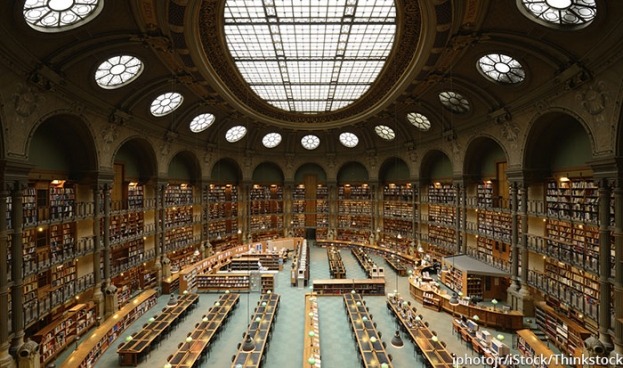Alberto Manguel, in his review of The Meaning of the Library: A Cultural History edited by Alice Crawford, calls this book "a wonderfully informative, erudite, and entertaining collection of essays." Here you will find material on the Library of Alexandria, which was known as a shrine to the importance of human knowledge, through the present-day research library where four kinds of work are done: curatorial obligations; engagement with research and learning; publishing; and management of spaces for readers to work in and collections to be housed.
For many centuries, libraries served as repositories for the rich and the privileged but the coming of the printing press empowered a new class of readers. One section in the book covers movies that have celebrated these institutions by Wim Wenders, Alfred Hitchcock, Alain Resnais, and Orson Welles. Future libraries will become not only repositories of published work but also of supplementary materials such as early drafts, letters, and personal memorabilia.
James H. Billington sums up the overall value of libraries as "places for the pursuit of truth." He writes: "Books are our guardians of memory, tutors of language, pathways to reason, and our golden gate to the royal road of imagination. … Libraries are antidotes to fanaticism."
All of these virtues can be put under the umbrella of the spiritual practice of openness which in our times has become a necessary quality in our yearning to become better and wiser people. When the tragedies and the suffering of the world are almost impossible to bear, there are always books to read. They are lifelines that keep us going.

 The Value of Libraries
The Value of Libraries